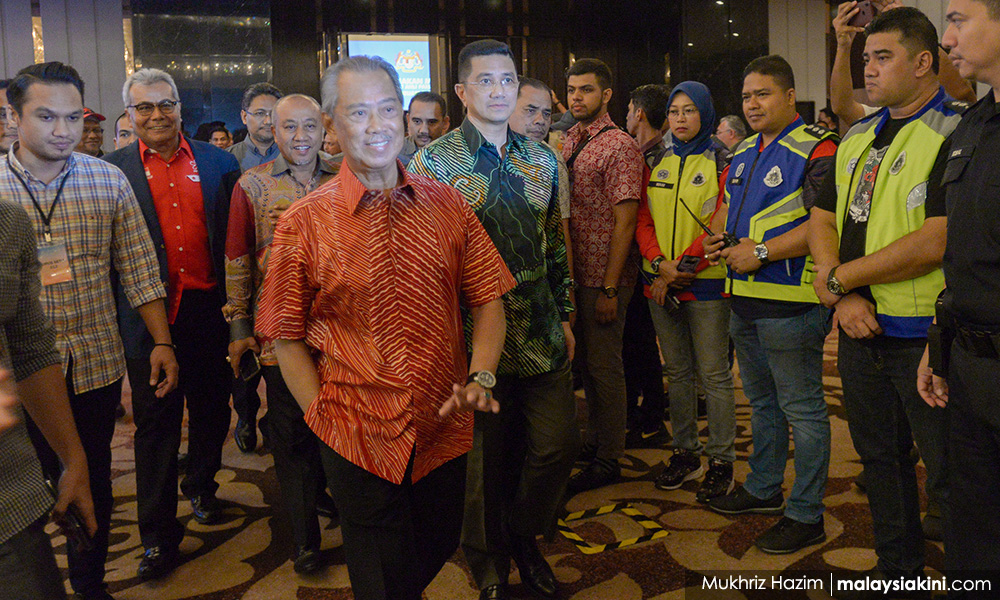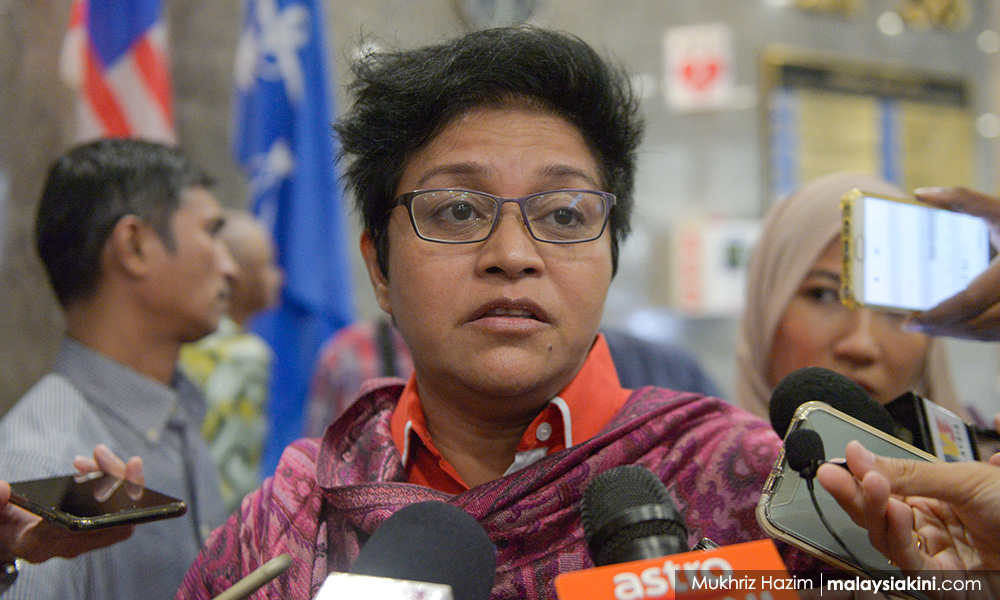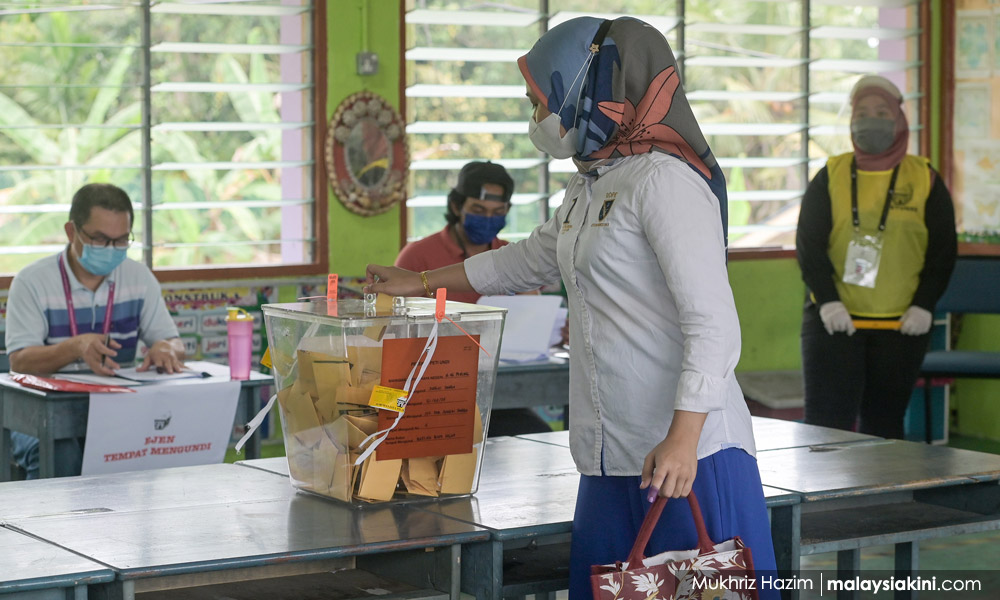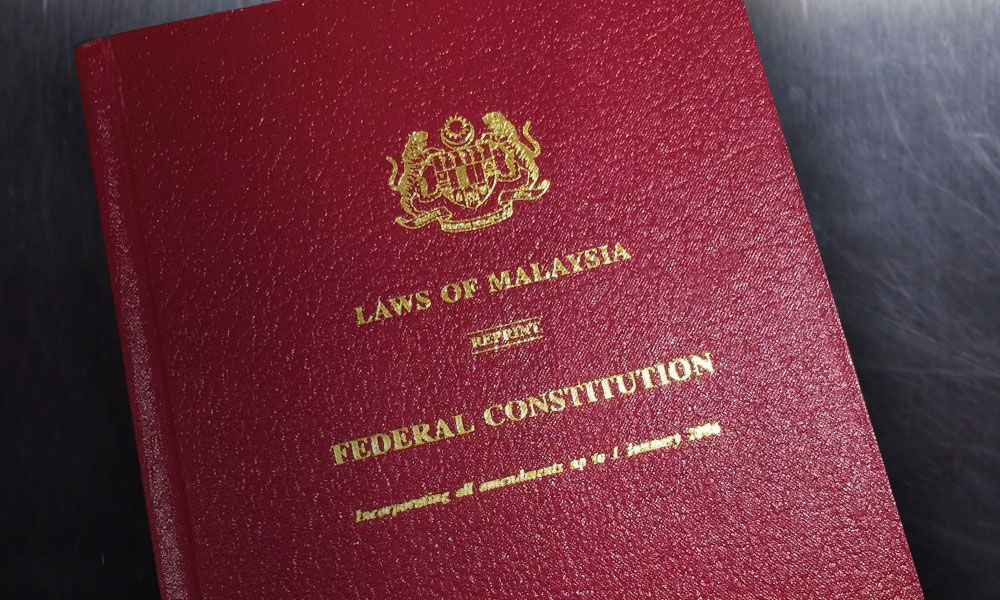It is good that the cabinet is set to approve the constitutional amendment bill which covers both the anti-party-hopping provision and the term limit for the prime minister, with Parliament’s approval set for next Monday (April 11).
Credit must go to Minister in the Prime Minister’s Department (Parliament and Law) Wan Junaidi Tuanku Jaafar who has worked hard to bring all parties to agree to the bill.
Pakatan Harapan also has assured that all 90 of its MPs will support the government's bill to amend the Federal Constitution and enact the anti-party-hopping law.
Disturbingly, however, the bill will not only introduce the ‘imperfect’ traditional Anti-Hopping Law (AHL) to the Parliament but also impose its replica on all 13 state assemblies.
Two imperfections of proposed AHL
Some readers may ask, why is this traditional AHL imperfect?
The traditional AHL is a tool that has been used in many countries to protect parties from the defection of lawmakers. It does not stop party-hopping but can deter it by vacating seats of the hoppers and forcing by-elections.
This tool is straightforward but has two imperfections.
Firstly, it not only punishes lawmakers who voluntarily quit their parties but also lawmakers who are sacked by their parties.
This allows party leaders to abuse the traditional AHL to eliminate rivals from Parliament by simply sacking them from the party. This will also make MPs toe party lines and make Parliament a rubber-stamp of any government that has a solid majority.
Lawyer New Sin Yew called it “undemocratic”.
Secondly, the traditional AHL will only punish MPs who leave or get sacked from their party, but not MPs whose party leaves or gets ejected from the coalition they represented when elected.
If we had the traditional AHL before the Sheraton Move, then Bersatu MPs would have no repercussion if their party leaves the Harapan coalition, but Dr Mahathir Mohamad and five other MPs who later quit the party or were sacked would face by-elections.

So, this means the traditional AHL cannot prevent another Sheraton Move? Unfortunately, it can’t.
Why not force it on parties? Because it would then turn coalitions into parties, deprive parties of the freedom to realign, and most importantly, parties may be weakened or even wiped out if their partners sack them from the coalition to force by-elections.
Are there better solutions?
To avoid these two major flaws, the solution is simply to give the power to the voters, instead of party leaders or MPs, to decide whether seats should be vacated and by-elections held.
In other words, MPs leaving or getting sacked by parties, parties leaving or getting sacked by coalitions, and independent MPs joining parties may trigger, but are not the full causes of, by-elections.
By-elections will only happen when voters express disapproval of those party/coalition-hopping MPs by way of a recall election or petition.
Do we have a bill ready for this Anti-Hopping Recall Law (AHRL)? Yes, my colleague Wo Chang Xi and I have drafted state-level recall laws as commissioned by Bersih, and Umno’s Pengerang MP Azalina Othman Said has tabled an identical private member bill to the Dewan Rakyat.

This recall mechanism draws ideas from the systems in the United Kingdom and the British Columbia province of Canada.
Under Azalina’s latest bill, by-elections can be triggered by all three above instances of party/coalition hopping, and two other circumstances.
First, by-elections can be triggered against MPs who keep their seats despite committing serious crimes because the court punishes them with a fine of less than RM 2,000 or imprisonment of less than a year.
Second, by-elections can be triggered if MPs are absent for more than 50 percent of parliamentary sittings in six months, leaves notwithstanding.
All it takes to trigger a by-election are signatures from enough registered voters, which will be collected by the Election Commission within 21 days.
These signatures would be to gauge support for a recall election, backed by a deposit of RM 10,000 similar to a parliamentary election.
How many signatures are enough? A minimum 40 percent or even half of the last election’s turnout. For example, if the turnout rate was only 55 percent as in the recent Johor polls, then signatures from 27.5 percent of voters would suffice.

Why don’t our MPs consider this bill? Because the government and the speaker did not allow Azalina’s bill to be debated, let alone voted upon.
More than that, many opposition MPs claim that AHRL is too complicated. They just want a traditional AHL even though they acknowledge its limitations. They are not interested to study and debate the new remedy.
Why impose imperfect remedy on all states?
Because the MOU between Prime Minister Ismail Sabri Yaakob’s government and Harapan has scheduled for an anti-hopping law to be tabled in the first parliamentary meeting in 2022, advocates for AHRL like Bersih, Chang Xi, and I agree to support the traditional AHL.
As elections may be called anytime, we want voters to be assured that their MPs cannot change parties to bring down the government or weaken the opposition.
Since it is too late for MPs to study and agree with the AHRL, after ignoring the detailed debate for three years, we accept that something imperfect is better than nothing.
However, when the traditional AHL fails to stop another round of coalition-hopping or if it is abused by party leaders, Malaysians can then demand another constitutional amendment.
The problem with imposing the traditional AHL on the states is exactly this: none of the states can switch from the traditional to the AHRL without another amendment to the Federal Constitution.
For Penang which already has a traditional AHL – which the federal bill almost replicates – or other states who want to follow suit, they need only an amendment to Article 10.

In 1992, the Supreme Court in the Nordin Salleh case ruled that a state-level AHL in Kelantan – by extension, also the one in Penang now - was unconstitutional on two grounds.
First, vacating a lawmaker’s seat for party-hopping is seen as restricting his/her freedom of association conferred by Article 10(1)(c). Second, state laws have no power to impose such restrictions.
To by-pass the 1992 verdict, the traditional AHL bill may have to insert a new clause to Article 10 which would sound something like:
“Restrictions on the freedom of association conferred by paragraph (c) of Clause (1) with regards to political parties may be imposed by this Constitution.”
With the addition of three words “and State Constitutions” after “this Constitution”, states like Penang can have their AHL while other states can have AHRL or status quo.
Why is such a need for the traditional AHL – with its obvious imperfections - to be forced on all 13 states?
Why make all 13 states vulnerable to the two imperfections of the traditional AHL – the inability to deter coalition-hopping and the danger of party leaders abusing power?
Drop the clause or vote on it
The government-opposition MOU does not cover state powers and must not be abused as such. So, why ask for trouble and controversy if the government and Harapan want the traditional AHL to be passed smoothly on April 11?
We call upon the Ismail Sabri government to drop the amendment to the Eighth Schedule and instead add “and State Constitutions” to its proposed Article 10(3A).
Otherwise, we urge the Parliament to allow voting on every clause in the amendment bill.
MPs who insist to impose the traditional AHL on all states must leave their name on the record and be held accountable by posterity when the imperfect laws come back to bite our democracy. Don’t hide behind a voice vote. - Mkini
WONG CHIN HUAT is an Essex-trained political scientist working on political institutions and group conflicts. Mindful of humans' self-interest motivation while pursuing a better world, he is a principled opportunist.
The views expressed here are those of the author/contributor and do not necessarily represent the views of MMKtT.



No comments:
Post a Comment
Note: Only a member of this blog may post a comment.